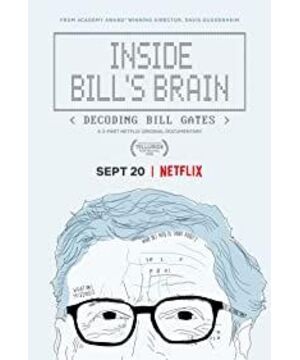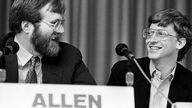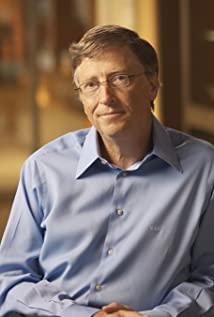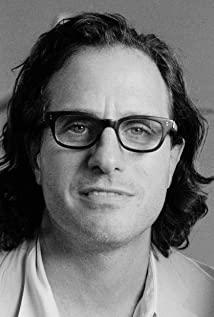For the past two days, I was sitting on the sofa, listening to/watching Bill Gates documentaries while playing Lego. It's a very recent film, coming on Netflix in September.
Divided into three small episodes, each episode revolves around three issues that the Gates and his wife have been trying to solve over the years: reuse of toilet wastewater, the complete elimination of polio (an infectious disease that causes paralysis), and the use of nuclear energy to end kerosene power generation. The film is interspersed with accounts of Bill's childhood, Bill's family, and of course Bill's Microsoft.
I'm interested in Bill Gates because I often see the books he recommends on YouTube; the other is because I recently learned about the work of the Gates Foundation in Yinuo's show. Yinuo himself decided to quit his job as a global partner at McKinsey because of a meeting with Bill and devote himself to the work of the Gates Foundation in China. At that time, Yinuo mentioned that the point that Bill touched me was that Bill was not the world's richest man or philanthropist in the traditional image. What Bill really did was to optimize resources. He uses his products to make money, and then invests the money in the Gates Foundation to solve neglected and intractable problems.
A dialogue in the documentary also confirmed this thinking. Bill said something realistic and went on:
Interviewer: It's not inspiring.
Bill: It's not my goal to be inspiring. The world has limited resources.
Interviewer: So if you're not doing things for inspiring, what are you doing things for?
Bill: Optimization.
This is a very mathematical, rational answer. That's probably how Bill works at work. Bill likes to compare his brain to a CPU, using systematic thinking to classify the knowledge structure he inputs. Then, "you have to pick up a pretty finite number of things to tell your mind to work on. You have to decide, what should you care about."
The film talks about the establishment and development of Microsoft, and it is mentioned many times that Bill is a complete workaholic. He also says that he is fanatic and very competitive. If there is a problem unresolved, his method is to speed up and continue to work. When writing code, he can skip meals and rely on refreshing supplements to maintain his strength. He played tennis. When asked how long he had been playing the longest time, he answered eight or nine hours.
The flip side of rationality is extreme emotionality. Several times in the film, he is stunned by a question thrown by the interviewer, and seems to be taken to a distant place by the question, and he can be seen trying to swallow and control his tears. These moments such as:
Interviewer: What was the worst day of your life?
Bill: ... the day my mother died...
Interviewer: If you get hit by a bus today and died, what's the one thing you said: God I wish I had done that I haven't done.
Bill: ... Thank you, Melinda.
Solving problems is more difficult than we think. Bill is probably the most misunderstood rich man. Microsoft was sued by the U.S. government, and footage of his court appearance was intentionally intercepted and released. The distribution of polio vaccines in Africa is often blocked by terrorists. Even the recent Covid-19, there was an uproar against him on the Internet, saying that the new crown was a conspiracy created by Gates to promote his biological vaccine.
The common thread behind the three issues in the film is global health. The early public welfare undertakings of the Gates and his wife were nothing more than donating computers to impoverished areas and popularizing the Internet. But an article they read over breakfast one day changed the direction of the Gates Foundation for the next two decades. The headline of the article was startling: For Third World, Water Is Still a Deadly Drink. In the 1990s, 1.7 million children died each year of dysentery from drinking contaminated water. In most people's world, they probably haven't thought about it at all, where does the waste that is flushed down the toilet go? Polio has a vaccine for a long time, but in some parts of Africa the disease cannot be eradicated, resulting in permanent disability. Energy is the ultimate problem facing mankind. How long can the fuel age support us?
At the end of the film, Interviewer asked, from the results, with a lot of time and money investment, Bill's three projects seem to have failed: Although he has found a solution to turn sewage into drinking water, but such a perfect The toilet now costs $50,000 to build; tens of billions have been invested to eliminate polio, and the number of cases has risen instead of falling last year; it took five years to negotiate a contract to build a nuclear power plant in China, which was unilaterally terminated by the Trump administration. Interviewer asked him if he ever thought about giving up? Bill gave two answers.
One answer is very direct, which is his usual attitude.
Sometimes you really do have to say 'Let's give up'. And sometimes you just have to say: 'I need to ... work harder.'
Another answer is about his life creed. Bill mentioned that when he and Melinda first started dating, they both enjoyed reading The Great Gatsby. Melinda has a green light, as written in the book. When everyone left at night after get off work, Melinda would turn on this light to read, and Bill knew he could go through the long corridor to find her when he saw the light. He said it was very similar to a scene in the book, where he said:
"He had come a long way to this blue lawn, his dreams must have seemed so close that he could hardly fail to grasp it."
This sentence hangs in Bill's study.
End credits:
Bill's mother, Mary Gates, once said:
Each one of us has to start out with developing his or her own definition of success. And when we have these specific expectations of ourselves, we are more likely to live up to them. Ultimately, it's not what you get or even what you give , it's what you become.
View more about Inside Bill's Brain: Decoding Bill Gates reviews









